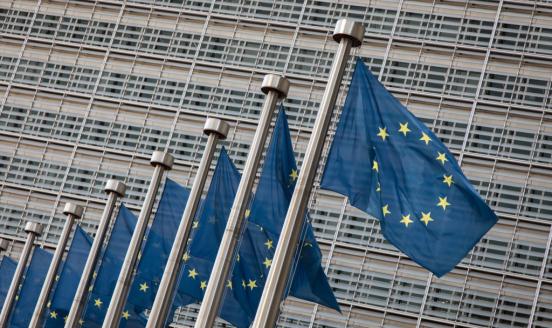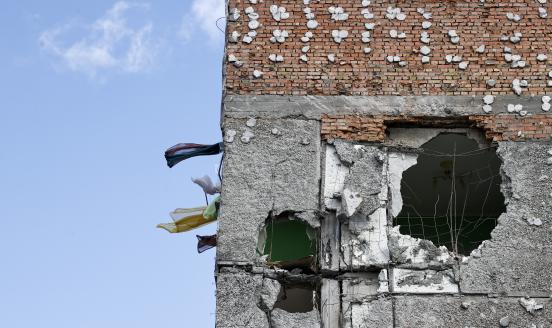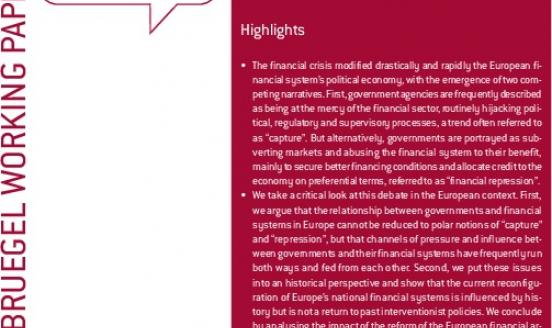The Weekender
Dear all,
It has been a busy election weekend in Germany, Greece and France. Each election is an idiosyncratic response to the current European crisis and will somehow set the stage of European politics for the months to come.
In Germany, the results in Schleswig-Holstein suggests a further erosion of the FDP (although smaller than forecasted), an additional weakening of the CDU (worst score since 1950). The CDU can try to form a coalition. But in fact, the SPD, the Greens and the Pirates along a couple of smaller parties (that of the Danish minority) could form a majority. This ought to have national relevance too and contribute to tilt further the CDU closer to the SPD in anticipation of a possible coalition in 2013. It is also striking to see the rise of a small party like the pirates, which could become a force to reckon with in a future grand coalition in 2013.
In Greece, this election marks the beginning of the end of the historical Greek parties (and more specifically of PASOK at this election). This looks worrying from the distance but is an unavoidable consequence of the crisis. The challenge for the Greek polity and for Europe as a whole is for the Greek democracy to achieve an unprecedented and rapid change of its political class/system while sticking to its European compass. Syriza, the new party to the left of PASOK, which is making a very strong showing, is against the current adjustment program but in favour of the euro. One has to expect some difficult negotiations with the troika but they have no reason to be disruptive to financial markets unless the threat of forced euro exit is raised. Financial markets are often schizophrenic but they cannot both call for a complete overhaul of the Greek political apparatus, whom they consider responsible for the current debacle and yet be disgruntled when it comes.
In France, Hollande’s victory is the most expected political outcome of the weekend. He has started to have conversations with European HoSG and informal exchanges about the ongoing European negotiations will start immediately. He will officially take office around May 15th but the exact date can be negotiated between Sarkozy and Hollande this week. Hollande confirmed that he would meet Angela Merkel immediately after taking office but also repeated that he would give a new direction to Europe.
Meanwhile I will focus on:
1. The shape and form of the “growth compact”
2. CRD IV: Of capital and liquidity
The shape and form of the growth compact
This is going to be the first and biggest challenge for Hollande’s new presidency but luckily, the terrain has become easier in the last few weeks. Hollande was a lone voice calling for a growth agenda a weeks ago and there is now a broader intellectual and political consensus around this idea.
Yet there are important misunderstanding and disagreements between member states on the exact contours of this new “growth compact”. Both Italy and Germany seem to have hammered out the outline of an agreement negotiated bilaterally to a large degree.
This agreement would revolve around:
- A directive for further liberalization of the internal market principally directive at services (essentially a revamped and enhanced Bolkenstein Directive). This directive would primarily aim at improving the situation in the labour market with 3 objectives which were mentioned by President Draghi during the Press conference this week (i) flexibility of the labour market, (ii) mobility with possibly more resources being allocated to encourage mobility within member states and within the EU and (iii) equity to earmark as much resources as possible to address youth unemployment which is viewed as the biggest risk to social cohesion and to potential growth.
- Recapitalization of the European Investment Bank so as to increase its scope and the size of its possible interventions
- Redesign of cohesion policy so that it benefits more the countries that need it the most and so that these funds can be disbursed more rapidly in the existing envelopes.
- Project Bonds, launch of (small) jointly issued bonds to finance dedicated infrastructure projects (likely to be targeted to the energy sector)
This is already probably more than Hollande could have expected just a few weeks ago. But the first part on the single market might come at some political cost for him. In return, he could probably secure a few more commitments that would be key for the medium term and that would help him to frame a long term vision towards a real completion of the monetary union.
This includes:
- Concrete steps towards a banking union. This ought to be a long and tensed negotiation (especially between the UK and the euro area) but it can be kickstarted fairly easily by dealing with Spain and arrange rapidly a program to recapitalize its banking system. The ECB seems more ready to play a role in this transitory phase where a real resolution framework remains lacking. My neo-functionalist mind firmly believes that once Europeans will have contributed money to recapitalize the Spanish banking system, they will organize the right framework and institutions to set up a proper banking union.
- A timetable towards a real fiscal union, that would aim to use some form of joint and several borrowing (eurobills, project bonds) as a first step towards a real European Treasury and a unified bond market.
These two last points are challenging in the current context but they would help to respond to Draghi’s call for a 10 years European agenda. Indeed, the best way to reduce the short term uncertainty that is freezing financial markets and creating so much collateral damage is to look beyond short term challenges and set out a vision for the euro area that financial markets can see through.
CRD IV: Of capital and liquidity
After these high-level considerations, at a more technical level, the last ECOFIN has been the occasion of a fierce negotiation on CRD4 (the adaptation in EU legislation of the Basel Committee rules known as Basel III). Unsurprisingly, this has exposed important divides in Europe, in particular between the continental Europe and the UK such that no agreement was reached.
What is striking though is the extent to which the debate is crystallizing on the capital adequacy ratio and in particular on the ability for each jurisdiction to define what constitutes capital and retain some flexibility to raise the required level of capital. But both the LCR (Liquidity Coverage Ratio) and the NSFR (Net Stable Funding Ratio) are being somewhat ignored in this debate while they could be extraordinarily important in the short term.
In fact, the EBA calculated in its most recent monitoring exercise that the European Banking sector would have a shortfall of more than 1.3 trillion euros of safe and liquid assets. This is particularly worrying because it could be well be that alike that the recapitalization exercise that was wrongly designed last summer and which set in motion a real credit crunch, the implementation of the largely ignored Liquidity Coverage Ratio could force European banks towards a real run to safe and liquid assets resulting in a net contraction of credit towards the real economy.
The ECOFIN and the parliament will be discussing the CRD4 directive again. They ought to look beyond the debate on capital and its definition and look closely at the implications for credit growth of measures affecting the Liquidity Coverage Ratio and Net Stable Funding Ratio. These two forgotten debates, might alone contribute to set in motion another wave of credit contraction in the euro area if the directive is passed as it is now.
Happy to have your thoughts as usual,
Best Regards,
Shahin Vallee


